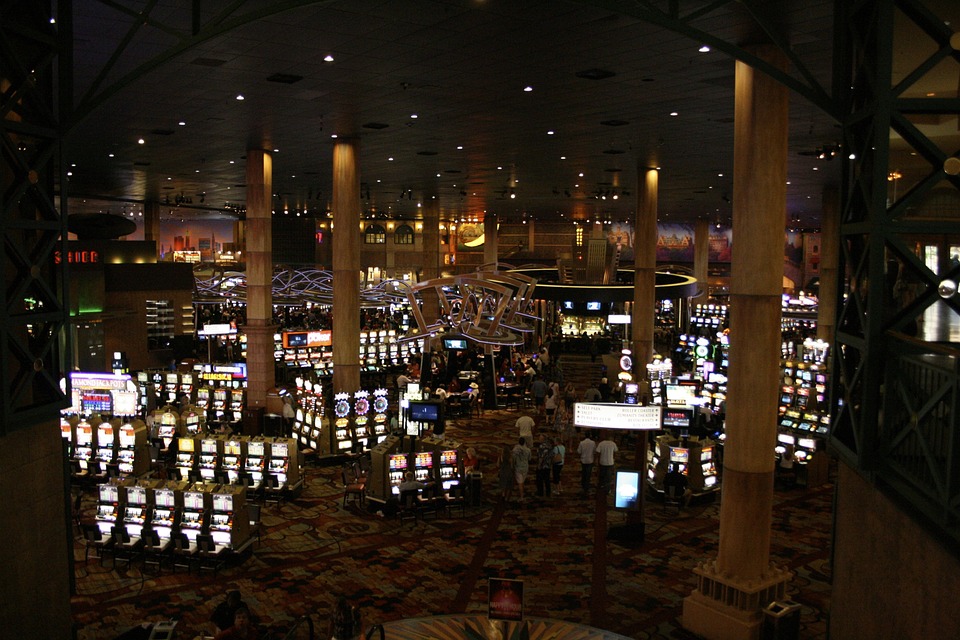Responsible Gambling Practices: How the Philippines Is Addressing Online Betting Risks

The rise of online gambling has brought significant economic benefits to many countries worldwide, including the Philippines. However, with the convenience of online betting comes the responsibility to ensure that these activities are conducted safely and responsibly. The Philippine government and various stakeholders are increasingly focused on addressing the risks associated with online gambling by implementing effective responsible gambling practices. The Landscape of Online Gambling in the Philippines The Philippines has emerged as one of the leading hubs for online gaming in Asia, particularly through the Philippine Offshore Gaming Operators (POGOs). This sector not only contributes substantially to the national economy through taxation and job creation but also offers a wealth of entertainment options to a growing number of consumers. However, the explosive growth of this industry has also raised concerns regarding addiction, fraud, and other negative social impacts. Understanding Responsible Gambling Responsible gambling refers to a set of practices aimed at minimizing the risks associated with gambling. These practices encourage players to make informed decisions, manage their gambling activities, and seek help when necessary. Key aspects of responsible gambling include setting limits on time and money spent, providing information on how to gamble safely, and ensuring access to support for those struggling with gambling addiction. Government Initiatives and Regulations Recognizing the potential risks that come with online betting, the Philippine government has taken steps to regulate the industry while promoting responsible gambling. The Philippine Amusement and Gaming Corporation (PAGCOR), which oversees gaming operations in the country, plays a crucial role in this process. Regulatory Framework: PAGCOR has established guidelines and standards that online gaming operators must adhere to, including responsible gaming practices. These regulations require operators to implement features such as self-exclusion tools, deposit limits, and reality checks that inform players about their gambling behavior. Public Awareness Campaigns: The government, in partnership with various organizations, has launched awareness campaigns to educate the public about the risks of gambling and the importance of responsible practices. These campaigns utilize social media, community events, and partnerships with educational institutions to reach a broader audience. Support Services: To address issues of gambling addiction, the Philippine government has facilitated partnerships with mental health organizations and support groups. They provide resources, counseling, and rehabilitation programs for individuals affected by gambling-related problems. Role of Online Operators Online gaming operators also play a vital role in promoting responsible gambling. Many have implemented their own set of practices to protect players and foster a safe gambling environment. Player Protection Policies: Leading operators establish comprehensive player protection policies that include age verification systems, responsible gaming resources, and regular audits of their gambling services to ensure compliance with legal standards. Technology Utilization: The use of advanced technology, such as artificial intelligence and analytics, helps operators monitor gambling behavior and identify at-risk players. Prompt intervention can aid in preventing issues before they escalate. Collaboration with Authorities: Many online gaming companies collaborate with PAGCOR and other regulatory bodies to stay updated on best practices and compliance standards related to responsible gambling. Challenges Ahead Despite these efforts, challenges persist. The ease of access to online gambling through smartphones and the internet has generated concerns about the vulnerability of certain populations, particularly the youth. Moreover, the rising popularity of informal and unregulated gambling platforms poses additional risks that require continuous monitoring and intervention. To combat these challenges, ongoing dialogue between the government, operators, and the public is essential. It is crucial to remain adaptive and responsive to evolving trends in online gambling and the associated risks. Conclusion The Philippines is taking significant steps to address the risks associated with online betting through robust regulations, awareness campaigns, and support services for those in need. By promoting responsible gambling practices, the country is not only protecting consumers but also fostering a sustainable gaming industry that contributes positively to its economy. As the landscape of online gambling continues to evolve, collaboration among all stakeholders will be key to ensuring a safe and enjoyable environment for all players.
Top Online Gambling Sites for Filipinos in 2023: A Detailed Review

Online gambling has become an increasingly popular pastime in the Philippines, fueled by the proliferation of technology, easy internet access, and a growing interest in various gaming options. As of 2023, Filipino players are spoilt for choice with a plethora of online gambling platforms offering everything from sports betting to casino games. However, not all sites are created equal. This article explores the top online gambling sites for Filipinos in 2023, ensuring you have the information you need to enjoy a safe and enjoyable gaming experience. 1. 888Casino Overview: 888Casino is one of the industry giants and has earned its reputation through a combination of a vast game selection,ing bonuses, and excellent customer service. Licensed and regulated in multiple jurisdictions, it ensures a safe and secure gambling experience. Key Features: Game Variety: Offers hundreds of games, including slots, table games, and live dealer options. Mobile Compatibility: A well-designed mobile app makes it easy to play on the go. Payment Options: Supports various payment methods, including local banking options like GCash and PayMaya. Why It’s Popular: 888Casino is favored for its generous bonuses, including a lucrative welcome package for new players, and a user-friendly interface that caters to both newbies and seasoned gamblers. 2. Betway Overview: Betway is a leading global sports betting platform that has made a significant mark in the Philippines. It offers a great variety of sports, esports, and casino games, making it an all-in-one gambling solution. Key Features: Live Betting: Provides users the option to place bets live while games are ongoing. eSports Betting: A solid esports section to capture the growing interest among younger Filipino players. Secure Payment Methods: Supports local payment options, ensuring smooth transactions. Why It’s Popular: Betway’s robust sportsbook, coupled with attractive promotions and a user-friendly interface, makes it a favorite among sports enthusiasts. 3. PureWin Overview: PureWin is an emerging platform that quickly gained traction with Filipino players thanks to its stylish design and vast offerings in gaming and sports betting. Key Features: Casino and Sportsbook: A well-rounded platform that caters to both sports bettors and casino lovers. Promotions: Consistently runs exciting promotions that attract and retain players. Customer Support: Offers 24/7 customer support with multiple channels for communication. Why It’s Popular: The seamless user experience, engaging gameplay, and variety of promotions available at PureWin have quickly made it a go-to site for many Filipino gamblers. 4. LeoVegas Overview: LeoVegas is a mobile-first online casino that has been recognized for its user-centric design and extensive game library. It embodies the spirit of fun and excitement that many players are after. Key Features: Award-Winning App: Highly rated mobile app for iOS and Android users. Live Casino: Features an impressive array of live dealer games. Fast Withdrawals: Fast payment processing assures players that they can easily access their winnings. Why It’s Popular: LeoVegas stands out for its focus on the mobile gambling experience, allowing users to enjoy casino games anytime, anywhere. The bonuses tailored for mobile players add to its allure. 5. Melbet Overview: Melbet is known for its extensive sportsbook, competitive odds, and diverse gaming options. Within the Filipino gambling community, it has built a strong presence. Key Features: Broad Betting Options: Bet on a wide variety of sports, including local leagues and international events. Casino Games: Offers a flourishing online casino with slots and table games. Attractive Bonuses: New players benefit from favorable promotion terms. Why It’s Popular: The combination of a competitive gaming environment, comprehensive sportsbook, and rewarding promotions has made Melbet a favored platform for sports and casino fans alike. Conclusion The online gambling landscape in the Philippines is booming, and players have endless options at their fingertips. When selecting an online gambling site, it’s crucial to consider factors such as licensing, game variety, customer support, and payment options. The sites mentioned in this review—888Casino, Betway, PureWin, LeoVegas, and Melbet—are among the best for Filipino players in 2023, each offering unique features to enhance the gaming experience. Always gamble responsibly, set limits, and enjoy exploring the exciting world of online gambling from the comfort of your home!
The Economic Impact of Online Gambling in the Philippines: What You Need to Know

Introduction The Philippines has emerged as a significant player in the global online gambling industry, positioning itself as a lucrative destination for both operators and players. With its robust regulatory framework, English-speaking workforce, and technological infrastructure, the country has attracted various online gaming companies, leading to an evolving landscape with far-reaching economic implications. This article delves into the multifaceted economic impact of online gambling in the Philippines, examining its contributions to the economy, employment, and social considerations. Economic Contributions 1. Revenue Generation Online gambling has become a substantial source of revenue for the Philippine government. The Philippine Amusement and Gaming Corporation (PAGCOR), the government agency responsible for regulating gambling activities, has reported rising revenues from licensing fees, taxes, and various operational incomes associated with online gambling operations. In recent years, online gambling revenue—particularly from licenses granted to Philippine Offshore Gaming Operators (POGOs)—has contributed significantly to the national budget. 2. Foreign Investment The boom in the online gambling industry has spurred foreign direct investment (FDI) into the Philippines. International gaming companies are setting up operations, drawn by the country’s favorable business environment, particularly the relatively low corporate tax rates and streamlined business licensing processes. This influx of investment has bolstered the local economy, contributing to regional development and infrastructure improvements. Employment Opportunities 1. Direct Employment The online gambling sector has created thousands of jobs, both directly and indirectly. Many gaming companies employ local talent for various roles, including customer service, IT support, marketing, and regulatory compliance. This influx of employment opportunities has provided a boost to the country’s job market, particularly in urban areas where most gaming firms are located. 2. Skill Development As the online gambling industry grows, it has contributed to the development of a skilled workforce in the fields of technology, digital marketing, and financial services. The sector has encouraged educational institutions to tailor their programs to better prepare students for careers in gaming and technology, ultimately fostering a culture of innovation and adaptability within the Philippine workforce. Social Considerations 1. Responsible Gambling While the economic benefits of online gambling are substantial, the potential for social challenges cannot be overlooked. Gambling addiction remains a concern, leading to calls for stronger regulations and advocacy for responsible gambling practices. The government and industry stakeholders must work together to create awareness about the risks associated with online gambling and provide support for individuals struggling with addiction. 2. Regulation and Oversight To ensure that the online gambling sector operates ethically and responsibly, the Philippine government has implemented regulations aimed at monitoring the industry and ensuring compliance with laws. This regulatory framework includes measures to combat money laundering, protect consumers, and ensure that gaming operators adhere to fair gaming practices. Effective regulation is crucial for maintaining the industry’s integrity and sustainability, which ultimately impacts the economic benefits derived from it. Challenges and Concerns 1. Legal and Regulatory Issues Despite the multitude of benefits, the online gambling industry faces legal and regulatory challenges that can impact its growth. Issues surrounding licensing, taxes, and international competition are ongoing concerns for operators. Moreover, the potential for corruption or mismanagement in the regulatory process must be addressed to instill confidence among investors and protect the integrity of the industry. 2. Economic Dependence As online gambling continues to grow, there is a risk that the Philippine economy may become overly dependent on this sector. A sudden downturn in the online gaming market or changes in international regulations could have severe repercussions for national revenue, employment, and local businesses that have aligned themselves with the industry. Conclusion The online gambling industry has undeniably made a significant economic impact in the Philippines, providing revenue, foreign investment, and job creation. As the sector continues to evolve, it is essential for all stakeholders—including the government, gaming operators, and civil society—to collaborate in ensuring that the incredible economic potential is harnessed while addressing the social concerns associated with gambling. Balancing growth with responsible practices will be key to securing the favorable economic landscape that online gambling has created in the Philippines.
Online Casinos vs. Local Establishments: Which Is More Popular in the Philippines?

Online Casinos vs. Local Establishments: Which Is More Popular in the Philippines? The gambling landscape in the Philippines has witnessed a significant evolution over the past few years. With the rise of technology and internet access, online casinos have surged in popularity, providing a competitive alternative to traditional brick-and-mortar establishments. This article explores the dynamics between online casinos and local gaming establishments in the Philippines, assesses their popularity, and discusses what this means for the future of gambling in the region. The Rise of Online Casinos In recent years, the Philippines has become recognized as a significant player in the online gaming industry. The proliferation of smartphones and high-speed internet has facilitated the growth of online casinos. Offering convenience, a wider variety of games, and lucrative promotional bonuses, these platforms have attracted a growing number of players. According to recent statistics, online gambling has seen a steep increase in participation, particularly among younger demographics who value accessibility and flexibility. One of the key selling points of online casinos is their ability to provide an extensive range of games—from classic slots and table games to live dealer experiences, all accessible from the comfort of one’s home. Moreover, online casinos often offer competitive bonuses and promotional offers, incentivizing players to try their platforms over local venues. Local Establishments: A Traditional Experience Despite the rise of online gambling, local casinos and gaming establishments continue to thrive in the Philippines. The country boasts several well-established casinos like City of Dreams, Solaire Resort and Casino, and Okada Manila, which offer not only gaming but also luxurious accommodations, fine dining, and entertainment options, creating a comprehensive visitor experience. For many, visiting a local casino is not just about gambling; it is a social outing. The atmosphere, excitement of live gaming, and interaction with other players and dealers contribute to a unique experience that online platforms struggle to replicate. Local establishments often host events, tournaments, and promotions that draw in crowds, enhancing their appeal. Comparative Analysis: Popularity Metrics Accessibility: Online casinos have the upper hand in terms of accessibility. Players can engage in gaming 24/7 without the need to travel, making online platforms more attractive for those with busy schedules or those residing in less urbanized areas. Variety of Games: While local casinos provide a range of games, online casinos generally offer a broader selection. Many online platforms boast thousands of games, including niche titles and progressive jackpots. Social Interaction: Local casinos offer a social atmosphere that online platforms cannot fully emulate. The thrill of live games, face-to-face interactions, and the electrifying ambience of a casino floor are significant draws for many players. Regulatory Environment: The Philippine Amusement and Gaming Corporation (PAGCOR) regulates both online and land-based casinos. This creates a level of trust and security in both avenues, although the regulatory framework for online gaming has been evolving rapidly to keep pace with its growth. The Future of Gambling in the Philippines As technology continues to advance, it is likely that the popularity of online casinos will keep rising, particularly as new innovations such as virtual reality (VR) gaming and mobile gaming enhance the online experience. However, local establishments also have a critical role to play; their ability to provide a well-rounded, immersive entertainment package makes them likely to maintain a loyal customer base. In a country where gambling has deep cultural roots, the coexistence of online casinos and local establishments may become the norm. Both options appeal to different segments of the population, and their strengths may complement each other rather than create competition. Conclusion In the Philippines, the choice between online casinos and local establishments ultimately depends on individual preferences and circumstances. For those seeking convenience and a vast selection of games, online platforms are increasingly appealing. Conversely, enthusiasts who value the traditional casino atmosphere and social interactions will continue to flock to local establishments. As the gambling industry in the Philippines evolves, it will be fascinating to see how both sectors adapt and grow in response to changing consumer behaviors and technological advancements.
Legality and Regulation: Understanding Online Gambling in the Philippines

The landscape of online gambling has evolved dramatically over the past few decades, with the Philippines emerging as a significant player in the global online gaming market. The confluence of widespread internet access, a tech-savvy population, and favorable regulatory frameworks has positioned the Philippines as a hub for both local and international gambling operations. This article seeks to explore the legality and regulation of online gambling in the Philippines, highlighting key laws, regulatory bodies, and the implications for operators and players alike. The Legal Framework of Online Gambling in the Philippines The regulation of online gambling in the Philippines is primarily governed by three main entities: the Philippine Amusement and Gaming Corporation (PAGCOR), the Cagayan Economic Zone Authority (CEZA), and the Aurora Pacific Economic Zone and Freeport Authority (APECO). Each of these authorities has its own framework for regulating gaming activities, catering to different facets of the online gambling industry. Philippine Amusement and Gaming Corporation (PAGCOR) PAGCOR is a government-owned and controlled corporation tasked with regulating and operating games of chance and gaming facilities within the Philippines. Established in 1977, PAGCOR has the authority to issue licenses for both land-based and online casinos. It operates a substantial number of casinos itself, contributing significantly to the government’s revenue through taxes and its share of casino earnings. Online gambling under PAGCOR is regulated through a licensing framework that requires operators to comply with strict regulations to ensure fair play, responsible gaming, and consumer protection. The issuance of a PAGCOR license means that the operator can legally offer online gambling services to players within the Philippines and abroad. PAGCOR’s regulations extend to various forms of online gaming, including poker, sports betting, and live dealer games. Cagayan Economic Zone Authority (CEZA) CEZA oversees the regulation of online gambling in the Cagayan Economic Zone, offering a different but complementary regulatory structure. CEZA licenses offshore gambling operators that wish to provide services to international markets, specifically targeting clients outside the Philippines. This has attracted numerous operators seeking to establish a presence in the burgeoning Asian market. CEZA’s licensing process emphasizes the need for transparency, high operational standards, and adherence to anti-money laundering (AML) regulations. The authority has positioned itself as a safe haven for online gaming companies, fostering a competitive environment that prioritizes security and player protection. Aurora Pacific Economic Zone and Freeport Authority (APECO) APECO operates a similar regulatory framework to CEZA, although its primary focus is on the Aurora Pacific Economic Zone. APECO offers licenses to online gaming operators, further expanding the online gambling industry within the Philippines. Like CEZA, APECO aims to attract international players while ensuring compliance with local laws and regulations. Compliance and Monitoring The Philippine government recognizes the potential for online gambling to generate significant revenue; however, it also understands the need to protect consumers and citizens from potential harms associated with gaming addiction and financial fraud. To address these concerns, PAGCOR and other regulatory authorities continuously monitor licensed operators to ensure compliance with gaming laws, responsible gambling programs, and anti-money laundering efforts. Both PAGCOR and CEZA enforce strict measures to combat illegal gambling, with regular audits and assessments of operating licenses. They also engage in public awareness campaigns aimed at educating players about responsible gambling practices. Online Gambling and Its Impact on the Economy Online gambling has become a crucial part of the Philippine economy, generating substantial revenue for the government through taxes and licensing fees. In recent years, the industry has attracted foreign investment and created numerous jobs, contributing to economic development in a country where unemployment remains a challenge. The increase in online gambling operations has also prompted discussions around a more unified regulatory approach, as the differing frameworks of PAGCOR, CEZA, and APECO can sometimes lead to inconsistencies. Efforts are ongoing to harmonize regulations and establish clearer guidelines that will benefit both operators and players. Conclusion The Philippines stands at the forefront of the online gambling industry within Asia, with a well-structured legal framework that balances operator interests and consumer protection. As the industry continues to grow, ongoing regulatory efforts will be essential to ensure that online gambling remains safe, fair, and transparent for all stakeholders involved. With evolving technologies and changing consumer preferences, the Philippines is poised to adapt its regulations accordingly, ensuring that it remains an attractive destination for both operators and players in the global online gambling market. Understanding the intricacies of legality and regulation in this space is essential for anyone looking to navigate the exhilarating but complex world of online gaming in the Philippines.
The Philippine Online Gambling Landscape: A Comprehensive Overview

The Philippines has established itself as a formidable player in the online gambling industry, attracting both local enthusiasts and international operators. The blend of progressive regulatory frameworks, a burgeoning digital infrastructure, and an ever-growing online user base has created a unique landscape that is both vibrant and complex. This article aims to provide a comprehensive overview of the online gambling landscape in the Philippines, including its regulatory environment, operational dynamics, challenges, and future prospects. Regulatory Framework The Philippine Amusement and Gaming Corporation (PAGCOR) At the helm of the country’s online gambling regulatory efforts is the Philippine Amusement and Gaming Corporation (PAGCOR), a government-owned entity that oversees all types of gambling operations in the country. PAGCOR was established in 1977 and has since evolved into a key player in regulating both land-based and online gaming activities. In the online domain, PAGCOR issues licenses to online gaming operators, ensuring that they comply with local laws and international standards. These licenses are primarily granted to websites that cater to international markets, while local operators focus primarily on the domestic market. The licensing process is strictly regulated, with substantial fees and stringent requirements aimed at maintaining the integrity of the gambling ecosystem. Offshore Gaming Operators and Integrated Resorts In recent years, the Philippines has also become a hotspot for offshore gaming operators, particularly from China. The Philippine Offshore Gaming Operators (POGOs) framework allows foreign businesses to run online gambling operations targeting international customers. This provision has significantly boosted the economy, generating billions in revenues for the government via taxes and licensing fees. Additionally, the establishment of integrated resorts, combining casinos, hotels, and entertainment venues, has further enhanced the online gambling landscape. Locations like Entertainment City in Manila are prime examples of how traditional and online gambling can coexist, providing diverse offerings to both local and international players. The Online Gambling Market Types of Online Gambling Activities The Philippine online gambling landscape encompasses a wide variety of gaming activities, including: Sports Betting: With a passionate sports culture, sports betting has garnered immense popularity, especially with local sports leagues and international events like the NBA and UEFA. Casino Games: Online platforms offer a plethora of traditional casino games, including slots, poker, and live dealer games, attracting players seeking the thrill of real-time gaming from the comfort of their homes. Lotteries and Sweepstakes: Online lottery services have emerged, allowing players to participate in both local and international lotteries seamlessly. E-sports Betting: As e-sports gain traction globally, online betting platforms have adapted to include this burgeoning segment, appealing particularly to younger audiences. Player Demographics The demographic landscape of online gambling in the Philippines is diverse. While younger generations, typically aged 18 to 35, form the bulk of online players, an increasing number of older individuals are joining the fray. This trend is largely attributed to the proliferation of mobile technology and internet access, allowing a broader audience to engage with online gaming activities. Challenges in the Industry Despite its rapid growth, the Philippine online gambling sector faces several challenges: Regulatory Hurdles: The shifting regulatory environment poses a constant challenge for operators, necessitating continuous compliance efforts and adaptability. Competition from Other Markets: As online gambling becomes more popular worldwide, the Philippines faces competition from other jurisdictions that are also keen on attracting international players and operators, such as Malta and Curacao. Illegal Operations: The presence of unlicensed operators remains a concern. PAGCOR and other authorities are continually working to combat illegal gambling activities, which not only threaten revenue but also put players at risk. Public Perception: Gambling still carries a stigma in many Filipino communities. Negative perceptions can hinder further growth and acceptance of online gambling as a legitimate entertainment form. The Future of Online Gambling in the Philippines As technology continues to evolve, the future of online gambling in the Philippines looks promising. Innovations in payment systems, such as cryptocurrency and blockchain technology, hold significant potential for revolutionizing the sector, making transactions more secure and transparent. Furthermore, the integration of augmented reality (AR) and virtual reality (VR) into online gaming experiences may transform how players interact with online platforms, providing immersive environments that mimic the casino experience. Finally, the continued interest from foreign investors and operators signals that the Philippine online gambling market will remain a dynamic arena. As regulatory frameworks become more refined and consumer safety measures enhance, the industry can thrive and become a notable contributor to the country’s economy. Conclusion The Philippine online gambling landscape is a rapidly evolving space with significant implications for local and international stakeholders. With a robust regulatory framework, diverse gaming options, and an expanding user base, the future of online gambling in the Philippines holds much promise. However, stakeholders must navigate various challenges to maximize the opportunities presented by this lucrative market. Ultimately, a balanced approach towards regulation and innovation can help foster a sustainable and responsible online gambling environment in the Philippines.
Navigating the Boom: Online Gambling Trends in the Philippines

The Philippines has emerged as a key player in the online gambling landscape, attracting global attention as one of the fastest-growing markets for digital gaming. With its robust regulatory framework, strong infrastructure, and rapidly growing internet penetration, the nation is experiencing a significant boom in online gambling activities. As we navigate this burgeoning industry, several trends are shaping the future of online gambling in the Philippines. Regulatory Framework The Philippines has a unique regulatory environment that supports online gambling through the Philippine Amusement and Gaming Corporation (PAGCOR) and the Cagayan Economic Zone Authority (CEZA). Established to oversee gaming operations and ensure fair play, PAGCOR has facilitated a safe environment for both local and international operators. With the rise of online casinos, PAGCOR has strengthened its regulations, offering licenses to operators while promoting responsible gaming practices. The clarity in laws and regulations has encouraged international companies to set up shop in the Philippines, further contributing to its reputation as a gaming hub. Surge in Mobile Gaming As smartphones become more accessible, mobile gaming has emerged as a dominant trend in the online gambling industry. A significant portion of the Philippine population now has access to mobile devices, allowing players to gamble from anywhere at any time. Operators are focusing on enhancing their mobile platforms, providing user-friendly interfaces and unparalleled gaming experiences. The integration of mobile payment solutions, such as e-wallets and cryptocurrencies, has also played a vital role in promoting mobile gaming, fostering a seamless transaction process for players. Rise of Live Dealer Games Another notable trend is the increasing popularity of live dealer games. Offering a more immersive experience than conventional online casino games, live dealer games allow players to interact with real dealers through live video feeds. This trend has gained traction due to the desire for a more authentic casino experience while gambling from the comfort of home. Philanthropic operators have invested heavily in technology and infrastructure to provide high-quality streaming and a diverse variety of games, further enhancing the user experience. Esports Betting Esports betting is rapidly gaining traction in the Philippines, driven by the country’s youthful demographic and growing gaming culture. Many Filipinos are avid gamers and spectators of esports competitions, translating into a flourishing market for wagering. Operators are capitalizing on this trend by providing dedicated platforms for esports betting, offering competitive odds and a variety of betting options that cater to a generation more inclined towards video gaming than traditional sports. The rise of platforms dedicated to esports betting underscores the changing landscape of gambling preferences among Filipinos. Social Gaming and Gamification The integration of social elements in online gambling platforms is another trend that cannot be overlooked. Gamification has made its way into the industry, enhancing user engagement through features such as rewards systems, competitions, and social sharing. Many casinos are now incorporating leaderboards and challenges that allow players to compete against friends and other users. This trend not only makes the gaming experience more entertaining but also fosters a sense of community among players, encouraging them to return to the platforms more frequently. Challenges Ahead Despite the promising growth of online gambling in the Philippines, the industry faces several challenges. Issues related to responsible gambling and prevention of addiction remain a significant concern. The government and operators must work together to promote awareness of responsible gaming practices and provide support systems for those in need. Additionally, the influx of international operators raises concerns about tax regulations and competition with local businesses. Conclusion As the online gambling sector continues to thrive in the Philippines, its potential appears limitless. Regulatory support, the rise of mobile gaming, the popularity of live dealer games, the burgeoning esports market, and the social gamification of platforms are all contributing to a dynamic and evolving industry. Stakeholders, including government agencies, operators, and players, must navigate challenges responsibly to ensure sustained growth and maintain the integrity of the market. If navigated wisely, the Philippines is poised to solidify its status as a premier destination for online gambling in the years to come.
Safety and Security: How Filipino Online Casinos Protect Players

The rapid growth of the online gambling industry in the Philippines has made it a focal point for both players and operators seeking a safe and secure gaming environment. With an increasing number of Filipino players turning to online casinos for their entertainment needs, ensuring the safety and security of these platforms has become imperative. In this article, we will explore how Filipino online casinos work to protect their players, focusing on data security, responsible gaming practices, regulatory compliance, and technological advancements. 1. Regulatory Compliance and Licensing One of the primary ways Filipino online casinos guarantee player safety is through stringent regulatory oversight. The Philippine government, through the Philippine Amusement and Gaming Corporation (PAGCOR), has established a comprehensive licensing framework for online gambling operators. Licensed casinos are required to adhere to strict standards covering fair play, data protection, and ethical operations. By offering licenses only to reputable operators, PAGCOR helps build trust between the players and the casinos. Players can find peace of mind knowing that licensed casinos have undergone rigorous scrutiny, ensuring that their operations are fair and transparent. 2. Data Encryption and Cybersecurity Measures In the digital age, one of the central concerns for online players is the security of their personal and financial information. Reputable Filipino online casinos employ advanced encryption technologies, such as Secure Socket Layer (SSL) encryption, to safeguard sensitive data. SSL encryption creates a secure tunnel between the player’s device and the casino’s servers, making it nearly impossible for malicious entities to intercept or steal data. Additionally, these casinos regularly update their cybersecurity protocols and conduct penetration testing to identify and rectify potential vulnerabilities. 3. Responsible Gaming Initiatives Responsible gaming is a crucial aspect of player protection in Filipino online casinos. Many reputable operators strive to promote a healthy gambling environment through various initiatives. These may include setting deposit limits, providing self-exclusion options, and offering access to resources for players struggling with gambling addiction. Additionally, online casinos often provide information about responsible gambling practices on their websites, empowering players to understand the risks associated with gambling and take control of their gaming habits. By promoting responsible gaming, casinos help create a sustainable gambling environment that prioritizes player welfare. 4. Fair Play and Random Number Generators (RNG) Fair play is essential for any casino experience, and Filipino online casinos take this responsibility seriously. To ensure that games are played fairly, they utilize Random Number Generators (RNG) in their gaming software. RNG technology guarantees that game outcomes are random and unpredictable, thereby eliminating any potential for manipulation. To further establish trust, many reputable casinos undergo regular audits by third-party organizations. These independent evaluations assess the integrity of the games and the fairness of the software, providing players with assurance that they are engaging in honest and fair gameplay. 5. Comprehensive Customer Support A robust customer support system is another vital component of safety and security in online casinos. Filipino online casinos typically offer various channels for players to reach out for assistance, including live chat, email, and often telephone support. This multi-channel approach ensures that players can quickly resolve any issues they may encounter, be it related to gameplay, account management, or security concerns. Furthermore, many casinos provide extensive FAQs and help sections on their websites, allowing players to find immediate answers to common questions. This commitment to customer service not only aids in resolving disputes but also reinforces the operator’s dedication to player safety. Conclusion As the online casino market in the Philippines continues to flourish, operators are increasingly focusing on the safety and security of their players. Through robust regulatory compliance, advanced data protection measures, initiatives promoting responsible gaming, and a strong commitment to fair play, Filipino online casinos are advancing their efforts to create a secure and enjoyable gaming environment. For players, understanding these safety measures is key to enhancing their online gambling experience. As long as players choose licensed and reputable casinos, they can enjoy the thrill of online gaming while knowing that their safety and security are top priorities.
Innovative Payment Methods for Filipino Online Casino Players

The rise of online casinos has transformed the landscape of gambling, and Filipino players are no exception. With the digital space becoming increasingly prominent, convenient and secure payment methods are essential for an optimal gaming experience. Filipino online casino players are not just seeking out thrilling games and generous bonuses; they are also looking for innovative payment solutions that can enhance their experience. Here, we explore some of the most effective and advanced payment methods catering specifically to this demographic. 1. E-Wallets: Expediting Transactions E-wallets have surged in popularity among Filipino online casino players due to their efficiency and security. Services like GCash, PayMaya, and GrabPay allow players to make instant deposits and withdrawals with minimal hassle. These digital wallets provide a seamless experience, often requiring just a few taps on a smartphone. One of the significant advantages of e-wallets is the level of anonymity they provide. Players who may be concerned about sharing their banking information can transact with confidence, knowing that their personal data is protected. Furthermore, many e-wallets offer low transaction fees and promotional bonuses for using their services, making them an attractive option. 2. Cryptocurrency: The Future of Payments Cryptocurrencies like Bitcoin, Ethereum, and Ripple are gaining traction in the Filipino online casino market. These digital currencies offer a decentralized method of payment that is both secure and anonymous. The rise of blockchain technology has enabled faster transaction processing, lower fees, and increased privacy for users. Filipino players are becoming increasingly tech-savvy, and as awareness and acceptance of cryptocurrencies grow, more online casinos are adopting these payment methods. Cryptocurrencies eliminate the need for intermediaries, which can lead to quicker deposits and withdrawals. Moreover, many players appreciate the investment potential that crypto offers, which adds an additional layer of appeal. 3. Online Bank Transfers: Direct and Reliable For those who prefer traditional banking methods, online bank transfers remain a reliable option. Popular banks in the Philippines, such as BDO, BPI, and Metrobank, have enhanced their online banking services, making it easier for players to transfer funds directly to their casino accounts. With the introduction of services like InstaPay and PesoNet, transactions are processed quickly, allowing players faster access to their funds. The added benefit of online bank transfers is the familiarity factor for many Filipinos, who are accustomed to traditional banking practices. The Return of Simplified Transaction Checking (STRATEGY) and other security measures makes online bank transfers a safer option for those wary of new technologies. 4. Prepaid Cards: A Controlled Approach Prepaid cards are an excellent option for players looking to maintain control over their gambling budget. Cards such as PaySafeCard allow players to load a specified amount before playing, ensuring they do not overspend. In the Philippines, where financial literacy is essential, these prepaid cards offer players a way to engage in online gambling without risking their financial security. Moreover, prepaid cards provide anonymity, as players do not need to share their personal information when purchasing them or using them at online casinos. This added layer of privacy can make gambling more appealing, especially for individuals who prioritize confidentiality. 5. Mobile Payment Solutions: The Game-Changer With the prevalence of smartphone usage in the Philippines, mobile payment solutions are becoming indispensable for online casino players. Integration of mobile payment platforms within online casinos allows for quick, on-the-go transactions. Players can deposit or withdraw funds in real time while playing from their phones or tablets, making it more convenient than ever. Companies like Globe Telecom and Smart Communications are developing services that allow users to conduct transactions using their mobile networks, further streamlining the process. These solutions often come with added promotions or loyalty programs, rewarding players for using their mobile wallets. Conclusion As the online gambling landscape continues to evolve, it is crucial for Filipino online casino players to have access to innovative and secure payment methods. E-wallets, cryptocurrencies, online bank transfers, prepaid cards, and mobile payment solutions are transforming how players engage with their favorite games. Each of these methods offers unique advantages, catering to the diverse preferences of Filipino gamers. As technology continues to advance, the future of payment methods in online casinos looks promising. Filipino players can expect even more convenient, secure, and inclusive options ahead, enhancing their gaming experiences while ensuring their financial safety. Whether you are a seasoned gambler or a newcomer, exploring these innovative payment solutions is vital for a seamless online casino adventure.
The Culture of Gambling in the Philippines: Online Casinos on the Rise

The Culture of Gambling in the Philippines: Online Casinos on the Rise Introduction Gambling has long been an integral part of Filipino culture, with deep historical roots entwined in local traditions and social activities. From traditional games like "tong-its" and "pusoy" to more modern pursuits like sports betting and online casinos, the Filipino gambling landscape is evolving. In recent years, the rise of online casinos has revolutionized the gambling experience, leading to rapid growth in the industry and considerable changes in social attitudes towards gambling. The Historical Context of Gambling in the Philippines Gambling in the Philippines dates back centuries. The Spanish colonial period saw the introduction of various card games and games of chance, which quickly became part of Filipino social life. By the time the American colonial government took control, the integration of gambling into public entertainment was solidified, resulting in the establishment of the Philippine Charity Sweepstakes Office (PCSO) in 1934 for lottery and small-scale betting. Casinos began to appear in the mid-20th century, with the Philippine Amusement and Gaming Corporation (PAGCOR) being founded in 1977 to regulate and operate state-run gambling venues. Over the decades, the gambling landscape has expanded significantly. However, recent technological advancements have paved the way for a new phenomenon: online casinos. The Emergence of Online Casinos The boom of the internet in the late 20th century ushered in a new era of gambling. Online casinos started to gain popularity in the Philippines in the early 2000s. This shift was accelerated by the increasing accessibility of the internet, the proliferation of smartphones, and the growing acceptance of digital financial transactions. Today, players can enjoy a vast array of games—from poker and blackjack to slot machines and live dealer experiences—at the click of a button. This convenience has attracted a younger demographic who are more tech-savvy and prefer to gamble from the comfort of their homes. Regulatory Framework and Economic Impact The Philippine government has recognized the potential of online gambling as a significant source of revenue. The introduction of the Philippine Offshore Gaming Operators (POGOs) in 2016 allowed foreign companies to operate online gambling services targeting international markets while paying taxes to the government. This move has dramatically boosted the local economy, generating billions in revenue and creating thousands of jobs. However, the rise of online gambling has also raised concerns regarding regulation, tax collection, and the social implications of gambling addiction. The government has worked to strike a balance between fostering a lucrative industry and ensuring consumer protections and responsible gambling initiatives. Social attitudes towards gambling While gambling has always held a place in Filipino culture, societal attitudes have evolved, particularly with the rise of online platforms. For many, online casinos are viewed as more accessible and less intimidating than traditional brick-and-mortar establishments. However, this shift has also led to increased concern about gambling addiction, particularly among younger players who may lack the experience and discipline of older generations. The stigma surrounding gambling is gradually dissipating, and it is increasingly seen as a legitimate form of entertainment rather than a vice. Family gatherings centered around card games or friendly bets on sports events exemplify this shift. However, the high stakes associated with online gambling can lead to issues of addiction and financial strain for some individuals and families. Future Outlook As technology continues to evolve, the rise of online casinos in the Philippines shows no signs of slowing down. Innovations in virtual reality (VR) gaming, enhanced security measures, and the integration of cryptocurrency for transactions are set to redefine the online gambling experience. Additionally, the increasing trend of live dealer games mimicking the in-person casino experience is likely to attract more players. With the government’s proactive regulatory approach, the online casino industry in the Philippines is poised for sustained growth. It is essential, however, for stakeholders—government, operators, and civil society—to prioritize responsible gaming measures to mitigate the risks associated with gambling addiction and protect vulnerable populations. Conclusion The gambling culture in the Philippines is undergoing a significant transformation, with online casinos emerging as a leading force in the industry. As the landscape continues to evolve, it is crucial for all parties to promote responsible gaming practices while harnessing the economic potential of this growing sector. The future of gambling in the Philippines is bright, but it comes with the responsibility of ensuring a balanced approach to this beloved pastime.

